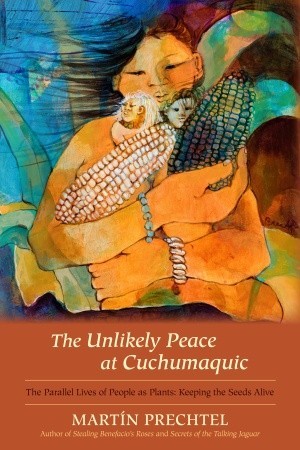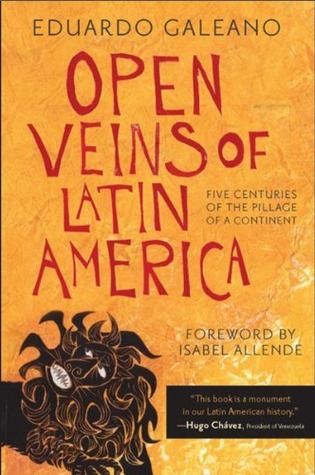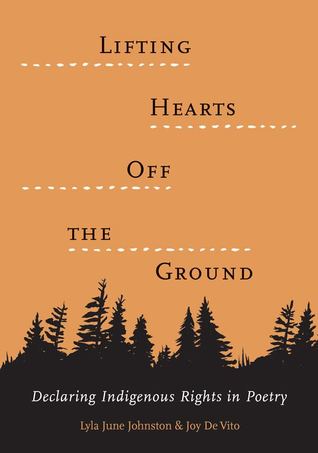Books
The Unlikely Peace at Cuchumaquic

The Unlikely Peace at Cuchumaquic is like one of the seeds Martín Prechtel describes—preserving a way of thought so endangered in the modern world. From the perspective of those growing up in the Western worldview, we need a translator in order to go below the surface of indigenous thought. Prechtel is an excellent guide on that journey, and he asks that you follow him outside of what you might consider normal in order to see something more wondrous and complex. This book is part story, part elegy to a culture under siege, and part how-to guide to resist the homogenizing and dulling forces that consume indigenous and earth-based culture, all written in a long, flowing prose that sweeps you up and away into the story.
“Turn that worthless lawn into a beautiful garden of food whose seeds are stories sown, whose foods are living origins. Grow a garden on the flat roof of your apartment building, raise bees on the roof of your garage, grow onions in the iris bed, plant fruit and nut trees that bear, don’t plant ‘ornamentals’, and for God’s sake don’t complain about the ripe fruit staining your carpet and your driveway; rip out the carpet, trade food to someone who raises sheep for wool, learn to weave carpets that can be washed, tear out your driveway, plant the nine kinds of sacred berries of your ancestors, raise chickens and feed them from your garden, use your fruit in the grandest of ways, grow grapevines, make dolmas, wine, invite your fascist neighbors over to feast, get to know their ancestral grief that made them prefer a narrow mind, start gardening together, turn both your griefs into food; instead of converting them, convert their garage into a wine, root, honey, and cheese cellar–who knows, peace might break out, but if not you still have all that beautiful food to feed the rest and the sense of humor the Holy gave you to know you’re not worthless because you can feed both the people and the Holy with your two little able fists.”
Open Veins of Latin America

Open Veins of Latin America is a vivid exploration of colonial and neo-colonial history in all of Latin America. This book is a valid answer to the question, “how did the United States get so rich?” When we examine the origins of modern culture in the U.S., we rarely ask questions about where our consumer goods come from, who we stepped on to stand at the pinnacle of global power, or how Central Americans became refugees crossing our southern border. This book is about Latin American history, but it is also about the intentionally hidden histories of the United States.
“Our defeat was always implicit in the victory of others; our wealth has always generated our poverty by nourishing the prosperity of others – the empires and their native overseers. In the colonial and neocolonial alchemy, gold changes into scrap metal and food into poison.”
“Latin America is the region of open veins. Everything from the discovery until our times, has always been transmuted into European–or later–United States– capital, and as such has accumulated on distant centers of power. Everything: the soil, its fruits and its mineral-rich depths, the people and their capacity to work and to consume, natural resources and human resources.”
Lifting Hearts Off The Ground

An indigenous poet and a settler poet examine the United Nations Declaration on the Rights of Indigenous Peoples and help it to become beautiful by bringing it into poetry.
Braiding Sweetgrass

“On Mondays, Wednesdays, and Fridays at 9:35 a.m., I am usually in a lecture hall at the university, expounding about botany and ecology—trying, in short, to explain to my students how Skywoman’s gardens, known by some as “global ecosystems,” function. One otherwise unremarkable morning I gave the students in my General Ecology class a survey. Among other things, they were asked to rate their understanding of the negative interactions between humans and the environment. Nearly every one of the two hundred students said confidently that humans and nature are a bad mix. These were third-year students who had selected a career in environmental protection, so the response was, in a way, not very surprising. They were well schooled in the mechanics of climate change, toxins in the land and water, and the crisis of habitat loss. Later in the survey, they were asked to rate their knowledge of positive interactions between people and land. The median response was “none.”
I was stunned. How is it possible that in twenty years of education they cannot think of any beneficial relationships between people and the environment? Perhaps the negative examples they see every day— brownfields, factory farms, suburban sprawl—truncated their ability to see some good between humans and the earth. As the land becomes impoverished, so too does the scope of their vision.”
Braiding Sweetgrass is a beautiful journey through our personal and cultural relationships with the natural world. Robin Wall Kimmerer writes from the dual perspectives of a Native American woman and an ecology professor, outlining the intersection between science and traditional ways of knowing the Earth. She writes to share a vision—how we can begin to form beneficial relationships with the natural world and move beyond a model of damage control.
Articles
Climate Change Could Destroy His Home in Peru. So He Sued an Energy Company in Germany.
Increasing glacial melt is creating unstable, increasingly problematic glacial lakes, especially in the Andes and Himalaya Mountains. In Peru, Guardians are charged with watching these lakes to try to prevent a catastrophic flood.
Using similar methods that eventually were successful in bring lawsuits against Big Tobacco, vulnerable populations are trying to sue the large corporations that have overwhelming contributed to climate change. Surprisingly, just 90 companies are responsible for two-thirds of all the greenhouse gases emitted between 1751 and 2016. More than half those emissions have occurred since 1988. Still, it is an incredibly complex question to figure out the harm and recompense involved in large-scale, complex systems like earth’s climate.
Since 2017, eight United States cities, including New York and San Francisco, six counties, one state and the West Coast’s largest association of fishermen have brought suit against a host of corporations — Exxon Mobil, Royal Dutch Shell, BP, Chevron, Peabody Energy, among others — for selling products that caused the world to warm while misleading the public about the damage they knew would result.
Read the full article
Initiation into a Living Planet
A key element of this transformation is from a geomechanical worldview to a Living Planet worldview. In my last essay, I argued that the climate crisis will not be solved by adjusting levels of atmospheric gases, as if we were tinkering with the air-fuel mixture of a diesel engine. Rather, a living Earth can only be healthy – can only stay living in fact – if its organs and tissues are vital. These comprise the forests, the soil, the wetlands, the coral reefs, the fish, the whales, the elephants, the seagrass meadows, the mangrove swamps, and all the rest of Earth’s systems and species. If we continue degrading and destroying them, then even if we cut emissions to zero overnight, Earth would still die a death of a million cuts.
That is because it is life that maintains the conditions for life, through dimly understood processes as complex as any living physiology. Vegetation produces volatile compounds that promote the formation of clouds that reflect sunlight. Megafauna transport nitrogen and phosphorus across continents and oceans to maintain the carbon cycle. Forests generate a “biotic pump” of persistent low pressure that brings rain to continental interiors and maintains atmospheric flow patterns. Whales bring nutrients up from the deep ocean to nourish plankton. Wolves control deer populations so that forest understory remains viable, allowing rainfall absorption and preventing droughts and fires. Beavers slow the progress of water from land to sea, buffering floods and modulating silt discharge into coastal waters so that life there can thrive. Mycelial mats tie vast areas together in a neural network exceeding the human brain in its complexity. And all of these processes interlock with each other.
Read the full article
Films
Vandana Shiva on Sustainability
“Whatever I do, I do from a deep love… a very deep love for life and all its gifts and bounties. And it’s that love that replenishes me and recharges me to go on. I’m not doing a job for anybody. Nobody is paying me a salary—this much nine-to-five and a little bonus if you do more. No, this is about living. It is about the joy of living. And if that joy of living requires that those who are robbing the planet of its life, those who are robbing people of their lives have to be resisted and questioned, I will do that too. That too is part of my resistance.”
The Worldwide Web of Belief and Ritual
Dreams From Endangered Cultures
“Indigenous cultures are not failed attempts at modernity, let alone failed attempts to be us. They are unique expressions of the human imagination and heart, unique answers to a fundamental question: What does it mean to be human and alive? When asked this question, the peoples of the world respond in 7,000 different voices, and these collectively comprise our human repertoire for dealing with all the challenges that will confront us as a species over the coming centuries.”
The Danger of a Single Story
In the isolated United States, we are telling a single story not just about other cultures, but also about ourselves and what we should be working towards.



